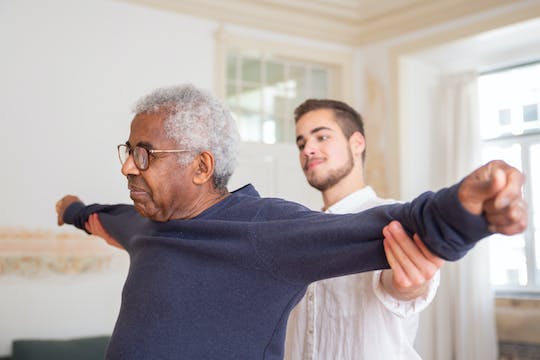In the journey of life, there may come a time when our loved ones require more than just occasional assistance. Aging, illness, or a disability can create challenges that demand a consistent and compassionate support system. In such situations, 24 Hour In-Home Care emerges as a crucial and personalized solution, ensuring individuals can maintain their independence and quality of life within the familiar comforts of home.
The Need for 24-Hour In-Home Care:
- Personalized Attention: Unlike other forms of care, such as assisted living facilities, 24-hour in-home care provides a one-on-one approach. Caregivers tailor their assistance to the specific needs and preferences of the individual, fostering a more personal and attentive caregiving experience.
- Preservation of Independence: Aging or dealing with a chronic condition doesn’t mean sacrificing independence. In-home care allows individuals to retain control over their daily lives, making decisions about their routines, activities, and environment.
- Familiarity and Comfort: Home is where memories reside, and it plays a crucial role in an individual’s emotional well-being. 24-hour in-home care ensures that the person receives the necessary support without having to leave the familiar surroundings, which can contribute significantly to mental and emotional stability.
- Promoting Physical and Mental Well-Being: Regular, consistent care is vital for managing health conditions. In-home caregivers are trained to assist with medication management, mobility support, and other health-related needs, promoting overall well-being and potentially reducing the risk of hospitalization.
The Role of Caregivers:
- Comprehensive Assistance: In-home caregivers go beyond mere physical support; they become companions and emotional pillars. They assist with activities of daily living (ADLs), provide companionship, and offer emotional support, creating a holistic approach to care.
- Professional Expertise: Trained caregivers bring a wealth of knowledge and experience to the table. From medical assistance to companionship, caregivers are equipped to handle a range of situations, providing families with peace of mind knowing their loved ones are in capable hands.
- Flexibility and Adaptability: The needs of individuals can change, and 24-hour in-home caregivers are adaptable to evolving circumstances. Whether the requirement is temporary due to post-surgery recovery or long-term for chronic conditions, in-home care can be adjusted accordingly.
- Communication and Collaboration: Effective communication between caregivers, individuals receiving care, and family members is paramount. Regular updates, collaborative decision-making, and a transparent approach ensure that everyone involved is on the same page regarding the care plan.
Conclusion:
24-hour in-home care is not just a service; it’s a commitment to preserving the dignity and independence of individuals facing health challenges. It’s about allowing our loved ones to age gracefully, with the support they need to live life on their terms. As we embrace the concept of in-home care, we are not just providing assistance; we are fostering a sense of comfort, belonging, and continuity, creating a nurturing environment where individuals can thrive, even in the face of adversity.
